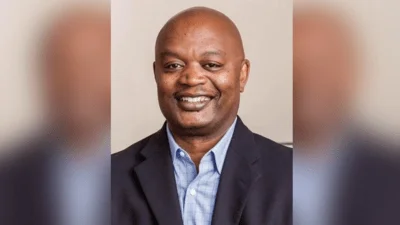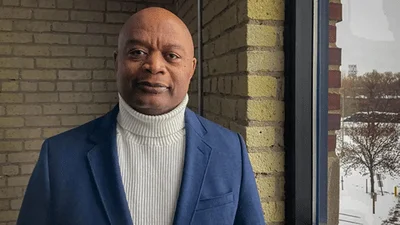City of Richfield issued the following announcement on Sept. 14.
Making the world a more equitable place where everyone can thrive seems so complex and challenging at times that it is difficult to determine where to focus one’s energy. Addressing those complex issues with improvements to sidewalks and crosswalks doesn’t seem like the obvious answer, but it is one way that the City of Richfield is taking steps to address inequality and make the city more accessible for all.
For years, the city’s well-known Sweet Streets campaign has been committed to a robust public engagement and communications process for each of the major projects taking place in the community. The Sweet Streets campaign has seen the reconstruction of major roads in the community, expansion of bicycle infrastructure and utility upgrades. The initiative is focused on eight guiding principles that direct each project.
“Sweet Streets was really where we began to re-balance our transportation priorities,” said Kristin Asher, Public Works Director. “We made a decision to re-prioritize transportation away from a ‘car as king’ model.”
Two years ago, a decision was made to make equity itself a bigger part of the process, calling it out as a unique performance measure for all major projects. Equity, along with the guiding principles, are now the areas that constitute the most important considerations for Sweet Streets projects.
“When we incorporate equity, the purpose is bigger. The outcome is bigger,” explained Transportation Engineer Jack Broz. “Projects are better when you include this piece of the puzzle.”
Evaluating the equity piece starts by asking basic questions to the right people: the actual users of those streets, sidewalks and bus stops.
“The challenge is to get input from underrepresented populations,” explained Asher. “We always need the help of trusted leaders in our community who can help those users engage in the process and provide the feedback we are missing.”
“Our goal is to ask the right questions, and try to give people the information they need,” explained Broz. “If we can show people the options that are available, they can give us the context for how the community is using the space. Then we can evaluate the trade-offs of those options and review it with the Transportation Commission and City Council.”
All this information is collected during the public engagement process for each project, and passed along to Richfield’s Transportation Commission. The commission’s charge is to review proposed improvements to street infrastructure, engage the project stakeholders and ultimately provide recommendations to the City Council on all transportation projects.
The Transportation Commission recently heard a presentation from Gloria Jeff, Livability Director for the Minnesota Department of Transportation, who discussed the incorporation of equity in all areas of transportation projects. Ms. Jeff explained that this work ensures the fair distribution of mobility options and investment that connect people with opportunities and resources necessary to support their quality of life.
Her recommendations for the commission included an emphasis on examining project outcomes in light of who is participating in the decision-making and who is benefiting from the projects. Those questions will continue to be the focus of the public engagement process moving forward.
“Our process is unique,” stated Broz. “Less than a handful of cities in Minnesota have Transportation Commissions. We calibrate each project through our Sweet Streets process and the commission to make sure we are getting at those crucial impacts of these projects, along with all the technical work.”
The result of this work, though time-intensive, will deliver better projects that serve the community in a better way.
“We want our residents to live healthier and happier lives, and to give them the access and opportunity they need to get out and enjoy Richfield,” concluded Asher.
Mayor Maria Regan Gonzalez and the rest of the city council could not agree more.
“Promoting the value of equity and ensuring that all city services can be accessed by our residents has been one of the city council’s core values and priorities for the past several years,” expounded Regan Gonzalez. “Residents of all backgrounds and ability levels use our roads, sidewalks, crosswalks and bike paths daily. Making sure that we have an equitable process for these transportation projects is instrumental in making Richfield a better place to live, learn, work and play.”
Original source can be found here.
Source: City of Richfield





 Alerts Sign-up
Alerts Sign-up